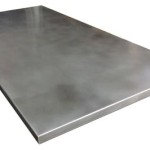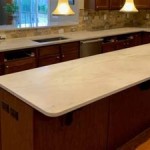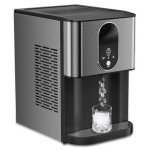Best Sealant for Butcher Block Countertop
Butcher block countertops, crafted from solid wood, bring warmth and character to any kitchen. However, their natural beauty and durability require proper maintenance, especially sealing. Sealing protects the wood from stains, water damage, and wear and tear, ensuring its longevity and aesthetic appeal. Choosing the right sealant for your butcher block countertop is crucial, as different finishes offer varying levels of protection and aesthetics. This article will guide you through the types of sealants available, their properties, and how to apply them effectively.
Types of Sealants for Butcher Block Countertops
There are two main types of sealants commonly used for butcher block countertops: oil-based finish and water-based finish. Each type possesses unique characteristics that cater to different preferences and needs.
Oil-Based Finish
Oil-based finishes, such as mineral oil, tung oil, and Danish oil, penetrate the wood's pores, creating a protective barrier. They are known for their natural look, enhancing the wood's grain and color. Oil-based finishes provide a warm, rustic feel and are often preferred for their food-safe properties. However, they require regular reapplication, typically every few months, as they do not form a hard, durable surface. Oil-based finishes are also prone to absorbing stains and are not recommended for high-traffic areas.
Water-Based Finish
Water-based finishes, including polyurethane, acrylic, and epoxy, form a protective layer on the wood's surface. They offer a more durable and water-resistant finish compared to oil-based finishes. Water-based finishes are ideal for high-traffic areas and can withstand spills and wear and tear better. While they provide a harder surface, they may slightly alter the wood's natural look and feel. Water-based finishes are also less forgiving during application, requiring meticulous care to avoid brush strokes and imperfections.
Factors to Consider When Choosing a Sealant
Selecting the right sealant for your butcher block countertop depends on various factors, including your desired level of protection, aesthetic preferences, and the frequency of use. Here are some key considerations:
Level of Protection
For high-traffic areas and countertops prone to spills and heavy use, a durable water-based finish like polyurethane is recommended. For casual use, an oil-based finish like mineral oil provides adequate protection, especially if you plan to reapply regularly.
Aesthetic Preference
Oil-based finishes enhance the wood's natural look and feel, while water-based finishes may create a slightly glossy finish. Consider the aesthetic you desire and how the finish will complement your kitchen's design.
Frequency of Use
If you plan to use your butcher block countertop regularly for food preparation, choose food-safe sealants like mineral oil or tung oil. Water-based finishes might be suitable if you use your countertop primarily for display or minimal food preparation.
Application Method
Oil-based finishes are typically easy to apply with a cloth or brush, while water-based finishes require more care and attention to avoid brush strokes. Consider your application skills and time constraints.
Application Process
Applying sealant to a butcher block countertop requires proper preparation and techniques to ensure effective protection. Here's a general guide:
Preparation
Before applying sealant, thoroughly clean the countertop with a mild soap and water solution. Allow it to dry completely. Sanding the countertop with fine-grit sandpaper can help smooth out any imperfections and create a better surface for the sealant to adhere.
Application
Apply the sealant according to the manufacturer's instructions. For oil-based finishes, use a clean cloth or brush to rub the oil into the wood's grain. For water-based finishes, use a brush or roller to apply a thin, even coat. Allow the sealant to dry completely before applying additional coats.
Maintenance
Regular maintenance is essential for preserving the sealant's effectiveness. Oil-based finishes require periodic reapplication, typically every few months. Water-based finishes generally require less frequent reapplications, but they may need occasional touch-ups depending on use and wear.
By understanding the different types of sealants, considering your needs, and following proper application techniques, you can choose the best sealant for your butcher block countertop and enjoy its beauty and durability for years to come.

How To Protect Butcher Block Counters During Projects Ugly Duckling House

How To Make A Butcher Block Countertop Food Safe Hardwood Reflections

How To Finish And Seal Butcher Block Countertops Angela Marie Made

5 Reasons To Use This Durable Butcher Block Countertop Sealer Waterlox

How To Seal Butcher Block Countertops With Food Safe Treatment

Don T Use Beeswax The Only Oil We Ll To Seal Butcher Block And How Finish Refinish Them Youtube

How To Finish Butcher Block Countertop Seal Oil Or Epoxy A Piece Of Rainbow

How To Finish And Seal Butcher Block Countertops Angela Marie Made

How To Stain And Seal Butcher Block In 24 Hours
Sealing Butcher Block Countertops With Dark Tung Oil A Food Safe Stain For Joyfully Treasured








